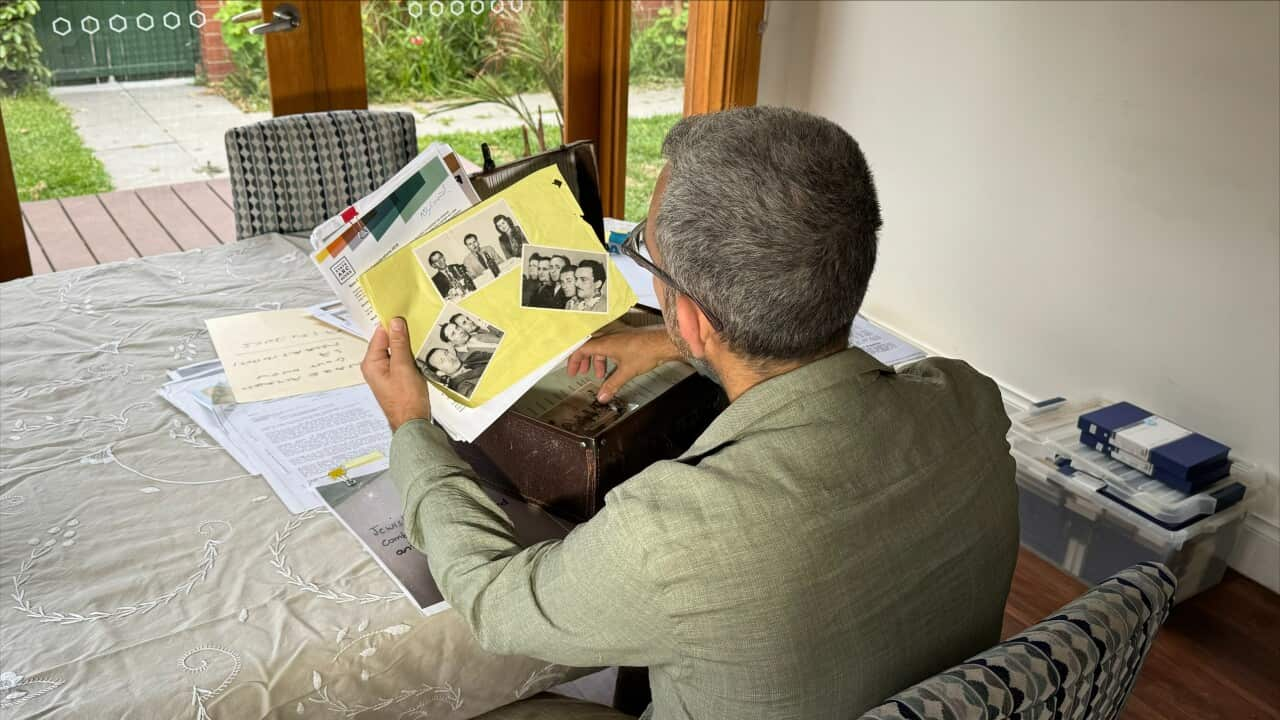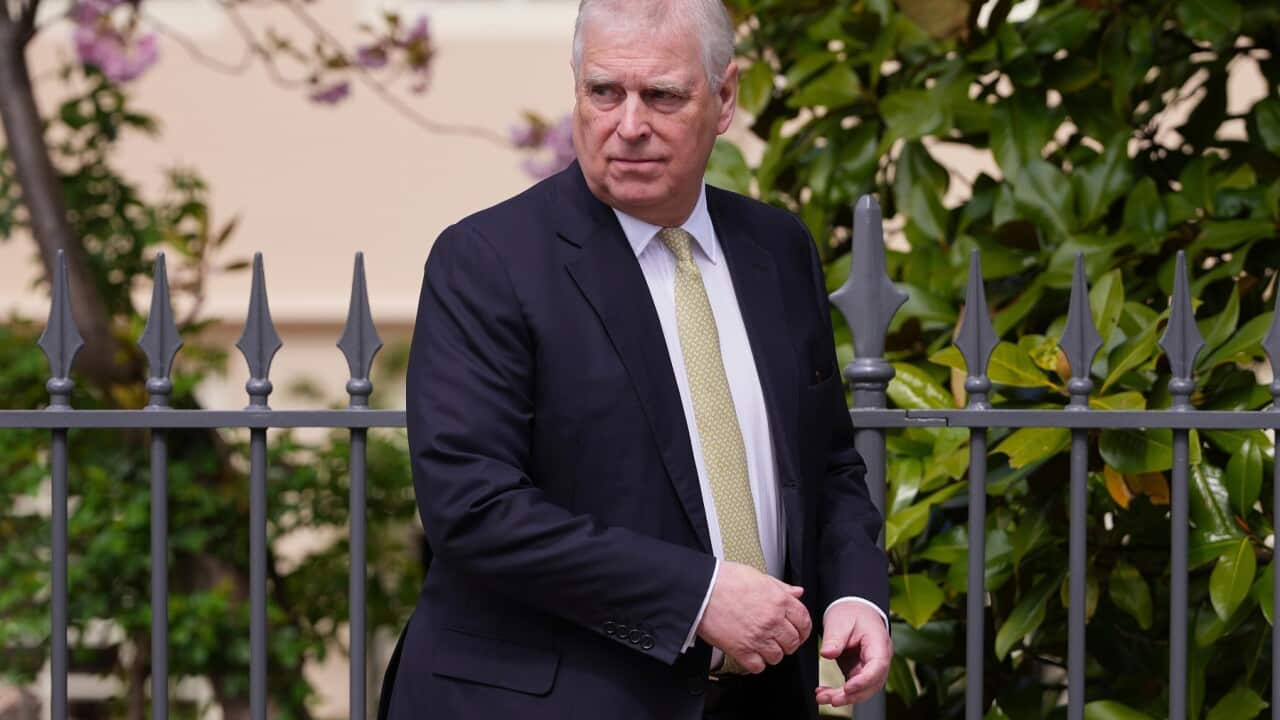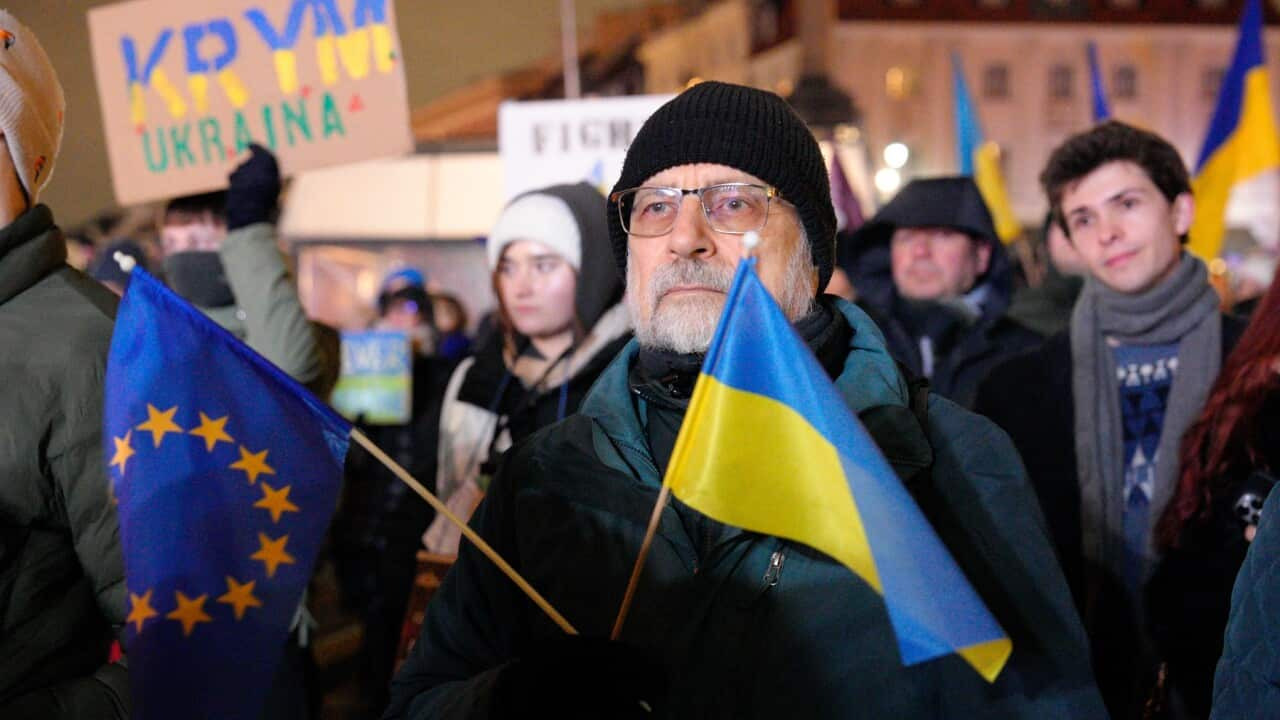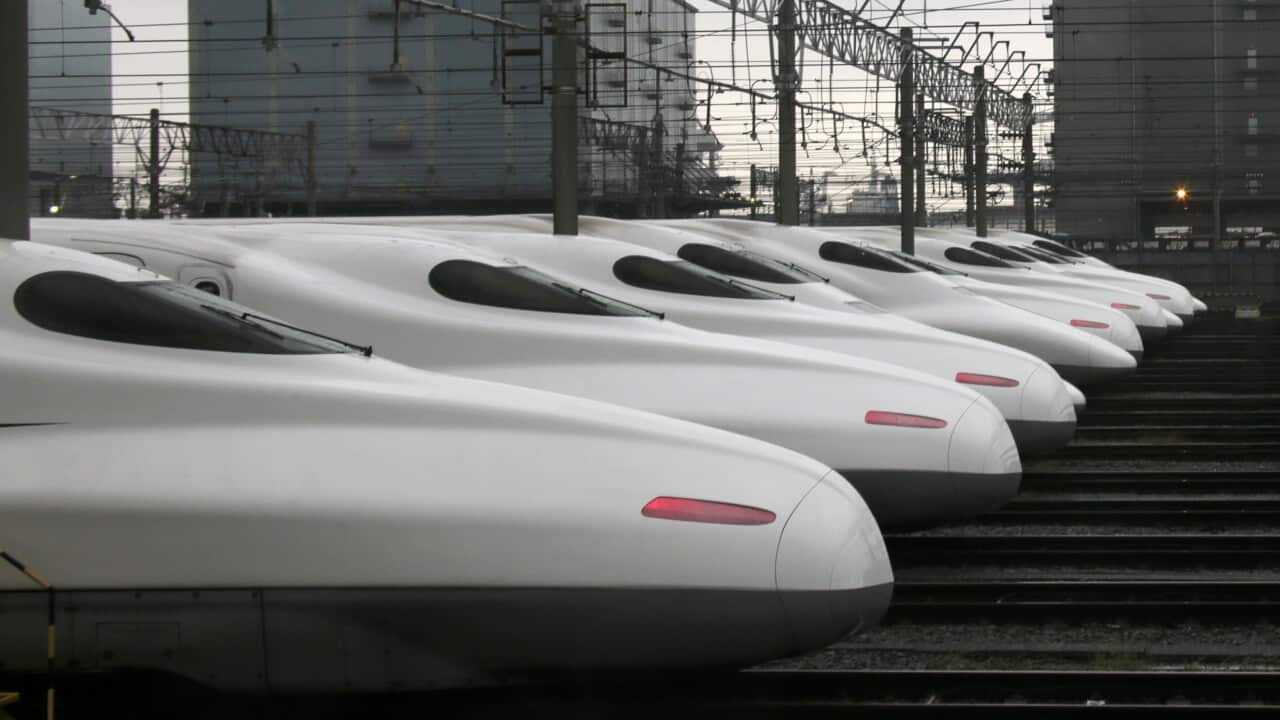Listen to Australian and world news, and follow trending topics with SBS News Podcasts.
TRANSCRIPT
It took a murder mystery investigation to lead Jack Green to the truth about his father.
“When I was growing up my father was quite an elderly man and I didn't really get to know him that well I think. I didn't really understand his interests and who he was.”
Jack Green's father, Boris, was a Jewish man living in Europe when World War two broke out.
The Lithuanian man was one of only two people in his family to survive the Holocaust.
He took up arms to fight the Nazis during the war.
Filmmaker Danny Ben-Moshe explores his life in his new documentary called 'Revenge: Our Dad the Nazi Killer'.
“He was a trained Nazi killer. He was a partisan. he headed a Jewish revenge group called Revenge. The partisans called Revenge. I've seen the documents - the Soviet wartime documents with the battles he was in, with the number of Nazis he killed.”
After the war, Boris Green immigrated to Australia and started a jewellery business in East Melbourne.
The watchmaker died in 2008, at the age of 95.
But in the years since his passing, time has revealed a well-kept secret.
Danny Ben-Moshe explains how he came to learn of it.
“I get a phone call from Jack Green...He goes, my dad passed away. I was sitting around with my older brothers, my older cousin and they just spoke about this time dad went to Sydney to undertake a revenge killing against a Nazi criminal and I want to find out if it's true.]]
It led to a painstaking search that lasted five years.
Researchers pored over more than a thousand documents, including top secret files.
They also enlisted the help of a private detective to look into Jack Green's suspicions.
“It's a bit of a shock to the system to hear that this is a possibility and you just have a natural curiosity to want to explore something about your own father. So in a way it was a journey of discovery about who my father really was.”
The film also exposes a dark chapter in Australia's history.
Between the 1940s and '60s, two million migrants came to Australia.
But so did some of the alleged Nazi collaborators.
The film's researchers say they entered the country, posing as legitimate members of post-war immigration schemes.
It's something that Holocaust survivors and their families, like Jack Green, had to come to grips with.
“ Australia, especially Melbourne had an enormous number of Holocaust survivors who came here and I didn't realise how many Nazi collaborators also came here - and many from the region that my Dad was from."
It's a topic close to film director Danny Ben-Moshe's heart.
He also lost family members in the Holocaust.
"It wasn't like Nazis came here without the Government knowing. Like, from the outset, you know, Holocaust survivors were literally on boats leaving Europe ... and there would be Nazis on the boats. Nazis who would taunt them... They would go into migrant hostels to restablish or start their new lives as Australians, there would be Nazis there that would be openly vilify and taunt them and persecute them as Jews."
Some Holocaust survivors report coming face-to-face with their loved ones' killers, who were living freely in Australia.
In the film, journalist and author Mark Aarons explains how many victims felt let down by authorities after the war.
"Jewish groups kept forwarding huge dossiers to the government but they could never get any action taken.”
In the quest for answers, the documentary exposes new information that even the Green family didn't know about.
Researchers uncovered 600 cases of alleged Nazis or collaborators living in Australia, who had died suspiciously or went missing in the decades following World War Two.
Filmmaker Danny Ben-Moshe says he wanted to explore the moral dilemma of what an ordinary person would do if coming face-to-face with a family member's killers, when justice has never been served.
"This is a big and dark chapter in Australia's history but you'd hope the Australian authorities would act differently this time to the way they did with Nazis, who they knowingly and openly brought to Australia en masse.”
'Revenge: Our Dad the Nazi Killer' has been released in cinemas.
The film's creators hope this documentary won't be the closing chapter on one of the darker aspects of Australian history.













